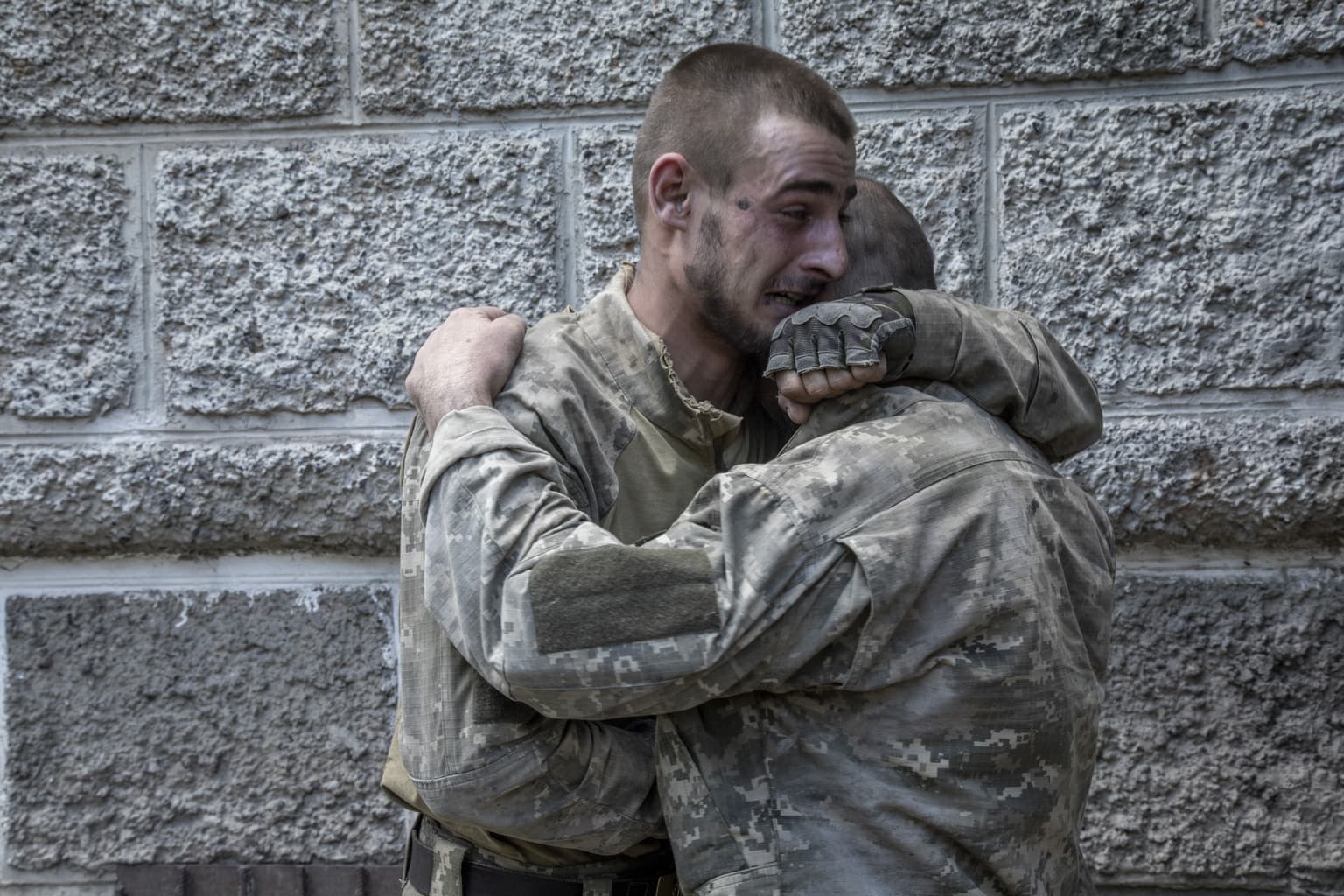Editor’s Note: The opinions expressed in the op-ed section are those of the authors. They do not purport to reflect the opinions of the Kyiv Independent.
After suffering five months of the worst devastation in Europe since the Second World War and defending their homeland with a determination that has gained admiration the world over, many Ukrainians are surely asking themselves the following disturbing questions and wondering when Western leaders will finally decide unequivocally that enough is enough and take, without delay, all the necessary steps to help Ukraine win the unprovoked all-out war that Russia launched against it on 24 February 2022:
How many more heinous acts of genocide (as recognized by the Parliaments of Canada, the Czech Republic, Estonia, Latvia, Lithuania, Poland, the Republic of Ireland and Ukraine) must be committed by Russia against the Ukrainian people?
How many more tears must be shed by Ukrainian parents when burying their children, such as 4-year old Liza Dmytriyeva, killed in a Russian air strike while pushing her doll stroller during a leisurely walk in the park with her mother in Vinnytsia?
How many more Ukrainians must be killed and injured in this unprovoked all-out Russian war against Ukraine, assuming that Ukrainian lives actually matter?
How many more Ukrainian teenage girls must be raped by Russian soldiers and told that they would continue to be raped so that they fear any future intimate relationship and not give birth to Ukrainian babies?
How many more Ukrainian prisoners of war must be tortured and then murdered by the Russian military, such as those at the Olenivka prison in the Russian-occupied territory of the Donetsk region?
How many more Ukrainians, including children, must be forcibly deported from their homes to Russia?
How many more millions of Ukraine’s internally displaced persons and refugees will it take?
How many more Ukrainian cities and towns must be ruined by Russia’s bombardments, such as Borodyanka, Bucha, Irpin, Kharkiv, Kramatorsk and Mariupol?
How many more churches, hospitals, schools, cultural sites and residential homes must be demolished in Ukraine by targeted Russian missile attacks?
How many more people must starve in needy countries while Russia brazenly destroys Ukraine’s agricultural sector and wreaks havoc on the breadbasket of Europe?
How many more gas crises must be artificially created by the Kremlin to drive gas prices to record highs and destabilize the global economy?
How many more international agreements must be violated by the Kremlin – many before the ink even dried on them – such as the Black Sea grain agreement?
How many more of the West’s appeasement efforts must be crushed by the Kremlin and used as buttressing for further Russian aggression, such as the lifting of sanctions on gas turbines by Canadian authorities on the urging of the Germans and encouragement by the Americans?
How many more terrorist acts, cyber attacks, and disinformation campaigns must take place both inside and outside Ukraine, such as the downing by Russian soldiers of Malaysia Airlines Flight MH17?
Russia is committing genocide in Ukraine and has increased its hybrid aggression against the West in plain sight, namely by weaponizing refugees, food, gas and information.
NATO member countries have realized this by declaring during their Summit on 29 June 2022 in Madrid that “Russia is the most significant and direct threat to their security and to peace and stability in the Euro-Atlantic area. Russia's brutal war in Ukraine has shattered peace in Europe.”
However, NATO member countries still do not fully grasp that time is of the essence.
Indeed, had NATO member countries acted in January 2022 when Russia was mobilizing its military troops on Ukraine’s border the way they did after the all-out war was launched by Russia on 24 February 2022 – there would have been no such war because Putin’s language is the language of force. Instead, at that time, NATO member countries were only sending threatening warnings to Russia, which in the Kremlin’s vernacular means weakness. As a result, Russia launched its all-out war against Ukraine.
In the same way, at this decisive time, Ukraine has a great window of opportunity before winter to win this war, stop Putin and bring back peace to Europe. However, that window is now.
Therefore, NATO member countries must stop wavering. Everyone knows that against the backdrop of Russia’s relentless war, announcing how NATO plans to help Ukraine in the future is only good for a short-lived sound bite that is quickly disseminated over Twitter and then forgotten. Instead, NATO member countries must provide Ukraine with additional financial assistance and all the necessary weapons now to enable it to impose a no-fly zone and push the Russian army back to the Ukraine-Russia border. They must also strengthen sanctions against Russia so that Western dollars do not continue to finance Russia’s genocidal war against Ukraine.
In an article titled “I’m Ukraine’s Foreign Minister. Putin Must Be Stopped.”, published on 29 July 2022 in The New York Times, Dmytro Kuleba wrote:
“No one wanted this war other than Russia, and no country in the world craves peace more than Ukraine. But a lasting, durable peace — rather than the time bomb of a frozen conflict — is possible only after Russia suffers a major battleground defeat. That’s why Ukraine must win. Only then will Mr. Putin seek peace, not war...
Ukraine, the United States and our European allies need to speak to Mr. Putin in his language: the language of force. Practically, this means strengthening Ukraine militarily, by speeding up deliveries of advanced artillery pieces and armored vehicles, and economically with additional financial assistance. Sanctions should be increased, too, targeting Russian exports, banning its banks and restricting its access to maritime trade.”
If the West responds promptly and effectively to this call to action by Ukraine’s Foreign Minister, we could still witness peace in Europe, including Ukraine, in 2022.










